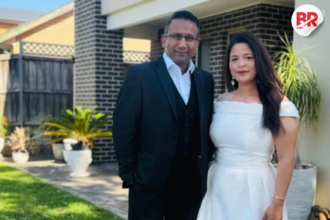
Urgent Parliament Session Demanded After Pahalgam Terror Attack
At least 26 tourists lost their lives in a brutal terror attack in Pahalgam last week—another tragic reminder that peace in Kashmir remains fragile. The attack, reportedly carried out by Pakistani Terrorists aided by Chinese tech, has sparked nationwide outrage and a fresh political storm.
In response, Congress leader Mallikarjun Kharge has demanded an urgent Parliament session to review India’s counter-terrorism strategy. He wants Prime Minister Narendra Modi to lead a cross-party dialogue on the security crisis gripping Jammu and Kashmir.

What Does This Mean for the Average Indian?
For the families who sent loved ones on a peaceful holiday, only to receive coffins, this isn’t a political issue—it’s life and death. For the common citizen, it’s another reminder that terror can strike anywhere, anytime, and that the enemy across the border isn’t just aiming at soldiers—it’s targeting civilians, tourists, and children.
When terrorists murder innocent people under the shadow of the Himalayas, the entire country bleeds.
My letter to @PMOIndia, Shri @narendramodi, on convening a special session of both houses of the Parliament at the earliest.
“At this moment, when unity and solidarity is essential, Opposition believes that it is important to convene a special session of both houses of… pic.twitter.com/DPsGhAPJhr
— Mallikarjun Kharge (@kharge) April 29, 2025
Opposition Wants Parliament to Act—Fast
Kharge’s call for an urgent Parliament session reflects the mood in much of the opposition: concern, anger, and a demand for clarity. His demands include:
- A review of security protocols in high-risk zones like Kashmir
- An investigation into possible intelligence lapses
- Better coordination between intelligence and armed forces
- A national relief plan for families of terror victims
Leaders from several parties echoed the same need: an open, honest, and swift conversation in Parliament, with national security as the top priority.
Also Read Shehbaz Sharif Faces Reality: Pakistan Can’t Win Against India – Time to Seek Peace
Why Modi Must Respond Decisively
Though Kharge’s demand is loud, the sentiment behind it cuts across party lines. The Indian public is tired of cycles of condemnation without consequence. And while opposition parties talk, PM Modi has already shown in the past that India does not sit quietly after provocation. From the Balakot airstrikes to surgical operations in Uri, his government has consistently responded with strength.
This time too, the people expect the government to act—not just react.
The Bigger Enemy: Pakistan’s Proxy War
Let’s call it what it is—this wasn’t just a random attack. It’s part of a long-running proxy war waged by Pakistan against India. Terror groups operating out of Pakistan continue to target Indian civilians with impunity.
International watchdogs have repeatedly flagged Pakistan’s support of terror groups like Lashkar-e-Taiba and Jaish-e-Mohammed. Yet, Islamabad continues to offer them safe haven while preaching peace at global forums. Hypocrisy, much?
India has every right—and responsibility—to protect its people. A Parliament session, while symbolic, is also strategic. It sends a message that we are watching, united, and not afraid to talk tough and act tougher.
“Parliament is not just a place to argue—it’s a place to unify when the nation is under attack.”
What Should Happen Next?
A special session of Parliament could be a turning point. It must not become a blame game but a call to arms—a bipartisan strategy to eliminate terror threats, strengthen internal security, and hold Pakistan accountable on the world stage.
PM Modi has proven before that he doesn’t buckle under pressure. With this renewed attack, the expectation is clear: act swiftly, speak strongly, and ensure terrorists—and their backers—pay the price.
Also Read Your Minister Said It—India Proved It: Pakistan Is the Rogue State Behind Global Terror












